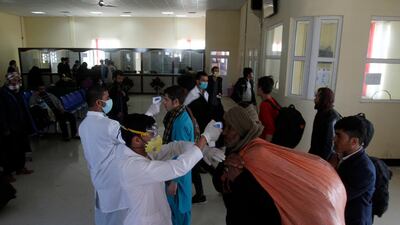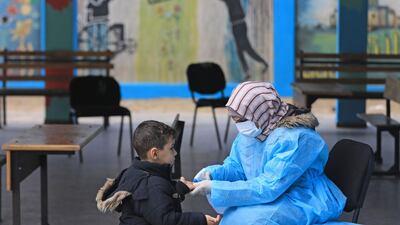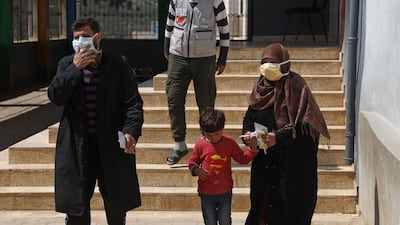Second and third waves of the coronavirus pandemic are hitting the world simultaneously, offering a time capsule back to March, when much of the world went into lockdown to arrest the first wave of the virus. Cases in the US continue to hit record highs and Europe is struggling. The Premier of the Canadian province of Quebec, where I live, has said case numbers are high enough that he is mulling closing down schools for an extended winter break.
Yet the combination of pandemic fatigue and the unpopularity of general lockdowns, promising news of vaccine trials by Pfizer and Moderna, as well as the endless news cycles of American political deadlock have ameliorated the general sense of panic that accompanied the early weeks of the pandemic. Perhaps part of it is a failure of communication, or a sense of helplessness as events unfold. While Canada is held up as a success story, certainly compared to the disaster unfolding south of its border, lockdown measures are confusing and contradictory, with little clear leadership here, or globally for that matter. Few seem to want to take charge and communicate clearly what needs to happen to mitigate this pestilence’s spread between now and when vaccines are widely available.
The situation is different, of course, in much of the Middle East, where rather than a series of waves things have been steadily getting worse since the summer. Nobody knows how many cases there truly are in Syria, but things just keep getting worse, with a vast escalation in cases among internal refugee communities in Idlib, rising cases elsewhere in the country, and little in the way of restrictions.
Jordan, which succeeded in quelling the pandemic early on with decisive lockdown measures, now has over 155,000 recorded cases, a sharp spike that began in September. Lebanon has over 100,000 recorded cases, the vast majority of them after the cataclysmic August explosion in Beirut that rendered a third of a million people homeless, and has gone into another shaky lockdown.
Nobody knows how many cases there truly are in Egypt. Iraq, though, has more than half a million, and Iran, which endured a devastating early outbreak, now has nearly 800,000 total infections. North Africa is suffering, too, with war-torn Libya at 75,000 cases. Morocco is battling an outbreak that has infected over 300,000 people.










The trends in the Middle East are more alarming for a host of different reasons. First, most countries cannot afford extended lockdowns due to economies devastated by war, sanctions, corruption and mismanagement. While many Western countries can afford to pass relief measures that actually pay people to stay home, you cannot expect people who rely on daily wages and live without a regular supply of electricity, let alone pension funds or stimulus packages, to forego their livelihoods. This is part of the reason lockdowns have failed in Lebanon, for instance.
The second is the state of the public health system in many Arab countries, especially those devastated by war. The region has long suffered from the brain drain of medical professionals, a trend that has accelerated in recent months and years due to political and economic instability in a number of countries. In addition, healthcare and humanitarian workers have been targeted deliberately in conflicts in Syria and Yemen, and hospitals have been devastated by direct attacks.
Third, the communication challenges facing Western governments are multiplied in the Arab world. The political polarisation in parts of the region, along with a broad scepticism and lack of faith in state institutions, makes it hard to deliver public health messages effectively to a public primed to question official narratives.
Finally, the light at the end of the coronavirus tunnel is closer in richer countries, which could afford to pre-order billions of vaccine doses. For example, Canada has pre-ordered enough Covid-19 vaccine candidates to vaccinate its population five times over.
According to data compiled by Duke University’s Global Health Innovation Centre, nearly 9.5 billion doses of vaccine have already been reserved, most of them by rich countries including the US, UK, Canada, EU members and Japan, in addition to G20 countries like India, Indonesia, and Brazil. High-income countries have already reserved 3.5bn doses. Very few Arab countries have pre-ordered vaccine candidates, and those who have, including Egypt, Saudi Arabia and Morocco, are procuring limited amounts.
Most are counting on an alliance called COVAX, which the World Health Organisation is a part of, to provide vaccines to low and middle-income countries. COVAX, which has received funding from many developed countries, has pledged to distribute 2bn doses of vaccines in high-risk areas by the end of 2021. That will not be enough to cover everybody. According to Duke University’s figures, there will not be enough vaccines for truly universal coverage around the world until 2024.
There are no obvious remedies to these problems besides going back in time and fixing decrepit public health systems and state institutions. We could perhaps try to learn from countries in Asia and Africa, like Vietnam or most of Sub-Saharan Africa, who similarly have limited resources but have managed to bring their outbreaks under control.
There is light at the end of the tunnel, but we must get through the tunnel first. And when we do, there will be a lot of rebuilding to do on the other side.
Kareem Shaheen is a veteran Middle East correspondent in Canada and a columnist for The National











